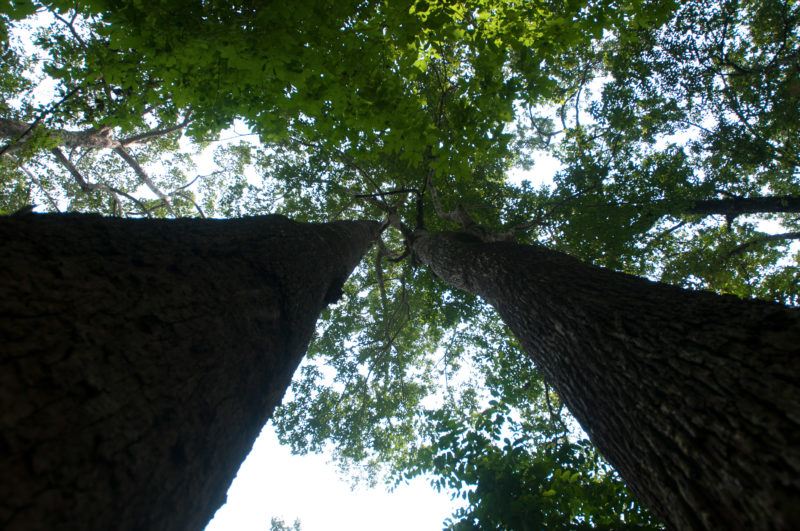Twelve civil society organisations (CSOs) have commenced the implementation of community projects in forest dependent communities in Cross River State. The development is coming under the Community Based REDD+ (CBR+) initiative, meant as a catalyst to trigger grassroots capacity and effective engagement in the Nigerian REDD+ process.

REDD+ implies reducing emissions from deforestation and forest degradation in developing countries (and the role of conservation, sustainable management of forests, and enhancement of forest carbon stocks in developing countries).
Cross River is benefitting as a pilot State in the Nigeria REDD+ readiness phase (that comes to a close by December 2016) with support from three agencies of the United Nations – United Nations Development Programme (UNDP), United Nations Environment Programme (UNEP) and the Food and Agriculture Organisation (FAO).
As part of the process, local community-level activities recently commenced under the auspices of the Global Environment Facility’s Small Grants Programme (GEF/SGP), which provided grants to the implementing CSOs, some of which are listed to include: Centre for Healthworks, Development and Research (CHEDRES), Green Planet Initiative International, Development Concern (DEVCON), Ekuri Initiative, Waneledon, Conservation Association of Mbe Mountais (CAMM), and African Research Association (managing Development in Nigeria) (ARADIN).
The CHEDRES, for instance, is working at the Esierebum community in Calabar South to increase the area of mangrove forest under sustainable management through raising nurseries and planting of indigenous mangrove seedlings in degraded mangrove sites.
The project also aims to improve the livelihoods of community beneficiaries through fish farming, a traditional livelihoods practice threatened by loss of mangroves, a natural breeding ground for fish. A combination of improved fisheries value chain and community forest management plan are expected to contribute to sustaining the outcomes of the project.
The Green Planet Initiative International’s target communities are Esuk Okon, Edik Idem and Akwa Obutong at Bakasi Local Government Area, where the CSO is working in the mangrove forest area to increase both income and carbon stock through planting of bush mango, while building target beneficiaries’ capacity in entrepreneurship and creating opportunities for income/livelihoods diversification through animal rearing, bee farming and other skills acquisition.
At Edondon community in Obubra Local Government Area, DEVCON’s project is designed to increase the area of tropical rainforest under sustainable management through regeneration and community forest management planning, contribute to poverty reduction by improving cassava value chain and encouraging agro-forestry practices that integrate the cultivation of non-timber forest products with other existing economic trees while ensuring sustainable land and forest management.
At Ekuri in Akamkpa Local Government Area, the Ekuri Initiative is reviewing existing forest management plan to support and strengthen community enforcement mechanisms to protect the largest community forest in Nigeria. It will also garner support to diversify the livelihoods of the rural community.
However, Waneledon’s project site is Ohumoruktet, at the Obubra Local Government Area in Ekuri/Iko REDD+ Pilot Site. The CSO aims to increase the area of community forest under sustainable management through land use planning and tree planting, while improving the livelihoods of target community groups, particularly women and youth.
Both CAMM and ARADIN are working at nine Mbe communities at Boki Local Government Area in Afi/Mbe REDD+ Pilot Site. The communities include: Bamba, Bokalum, Wula 1, Wula 2, Kanyang 1, Kanyang 2, Abo Ogbagante, Abo Obisu, and Abo Mkpang.
According to officials of CAMM, their section of the project supports community-based forest management among the nine communities of Mbe Mountains. They added that CAMM, a community-based organisation (CBO) collectively owned and managed by the nine communities, designed the project to address forest loss, improve the living conditions of community members through environmentally sustainable farming practices and value addition, and improve the protection of the critically endangered Cross River Gorillas. The project will also seek to enhance the value of the Mbe Mountains through ecotourism, they stated.
The ARADIN project, it was gathered, works in two of Mbe’s nine communities – Bamba and Bokalum. ARADIN is said to have designed the project to promote biodiversity conservation and sustainable use and management of natural resources.
“The project intends to build communities’ capcity in land use planning and rule enforcement, and create more opportunities for sustainable livelihoods practices with particular focus on sustainable cocoa farming,” an official disclosed.
Anthony Atah, the Nigeria REDD+ Stakeholder Engagement Specialist, stated that, following an inception meeting with the CSOs and interaction with a few communities, it became pertinent for REDD+ to take steps to create synergies between REDD+ and CBR+ that were otherwise lacking at the early stage and could undermine the investments in these communities.
He said: “Already, clear signs of poor communication, mistrust, and difficult expectations were beginning to emerge between some benefitting communities and CSOs implementing the CBR+ project. The time lapse between project design and implementation also required realigning the projects to current reality, without which success will be minimal.
“These, and the need to appraise and support capacity of CSOs to deliver local REDD+ actions on the ground, while strengthening communities’ participation, required urgent and proactive steps to engage both communities and CSOs in the project locations in in reviewing the CBR+ projects and aligning them in the broader REDD+ context.”
